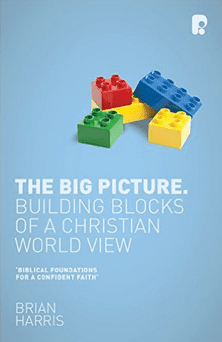 Some — and probably far more than “some” — believe Christian orthodoxy is a simple, clear, uneventful interpretation of Scripture and, in particular, of the apostolic teaching. In other words, apart from some dipsticks all believed in the deity of Christ in more or less the Chalcedonian form from the beginning. Ronald Heine, in his book Classical Christian Doctrine: Introducing the Essentials of the Ancient Faith, establishes in simple chapters and clear prose and undeniable evidence that orthodox christology was a process. And there were some articulations — and we will look at Logos christology — that were more or less passionate, informed, intellectual and mistaken experiments to articulate the truths of who Jesus was and what he did.
Some — and probably far more than “some” — believe Christian orthodoxy is a simple, clear, uneventful interpretation of Scripture and, in particular, of the apostolic teaching. In other words, apart from some dipsticks all believed in the deity of Christ in more or less the Chalcedonian form from the beginning. Ronald Heine, in his book Classical Christian Doctrine: Introducing the Essentials of the Ancient Faith, establishes in simple chapters and clear prose and undeniable evidence that orthodox christology was a process. And there were some articulations — and we will look at Logos christology — that were more or less passionate, informed, intellectual and mistaken experiments to articulate the truths of who Jesus was and what he did.
Where do you think we need to be more patient in listening to the experiment and process of theology?
All theology, in the sense of orthodoxy or dogmatics or systematics, is a process. It’s an experimental expression to put into words what one thinks the Bible teaches in words that make sense in a new context. This also means no articulation is infallible or absolute or final. Which is not to say theology isn’t true, but it’s not final truth.
Here’s a question that arose early, and by the second century a resolution called Logos christology had gained a foothold in the church. That foot, though, got stepped on and it backed off and Logos christology gave way to better expressions.
The question is this: How does one believe in One God and at the same affirm the deity of Christ?
Some early Christians, and Heine looks at Justin Martyr most but one can include Athenagoras, Theophilus and Tatian. The crucial idea here was that they sought for a resolution in the idea of Logos from the Greek philosophical world. Logos refers at some level to two elements: the generative mind of all things and the form expressing that mind.
Middle Platonists, who combined Plato with the Stoics, found some sense in a god who transcended all and therefore a second god, a creator God, a demiurge, a Logos, that creates matter and material. The upshot of this is a kind of two-god theory at work. Philo gets close to this at times.
In the 2d Century Christians like Justin bagged Middle Platonism with belief in Christ to articulate what at times was little other than a two-God-theory, the Father and the Logos (Christ). Justin’s God, though he affirmed the God of the New Testament is the God of the Old Testament, really never held this idea firm. Instead, he thought God transcended matter and created through the Logos, Christ. Tertullian, Heine says, is close to Justin.
This Logos was the agent of creation and revelation. Heine points to problems and why this theory did not win the day: it sounds like a first and second God; Logos is subordinate; it is too much Middle Platonism and not enough Bible.
Logos Christology was never considered heresy; it was considered inadequate.
We must be patient with folks who are probing theological articulations that take us beyond where we’ve been. I don’t mean we need to consider ideas already thought through exhaustively (where most folks who do so have not read the principal literature) but when something new needs to be considered, as there is today with issues like Adam and the genome project or eschatology and quantum physics or ecclesiology in a fractured age… these deserve careful articulation, pushback and patient understanding. Some of these articulations may be Logos christology and some may be Nicene and Chalcedonian. God still speaks.











